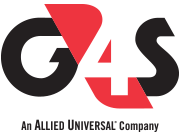How G4S Supports
the U.N. Sustainable Development Goals
G4S has been a signatory to the U.N. Global Compact – which helps businesses to focus on delivering sustainable activity against 10 key principles – since 2011, so we were already quite closely aligned with the ideas behind the Sustainable Development Goals (SDGs) when they were launched in 2015.
The SDGs are a collection of 17 goals, each with a set of targets that the U.N. intends the world to meet by 2030, with the ultimate aim of improving sustainability and quality of life around the planet. There is ever growing understanding among companies that the objectives set by the SDGs are crucial to the people around the world, and recognition of the role that business will have in delivering and taking them forward.
Operating as an ethical and sustainable business is fundamental to a company’s ‘licence to operate’. There is increasing legislation around these areas in markets across the world, and where there isn’t legislation, we believe being a responsible company is the right thing to do. There is now a growing expectation from customers, employees and society in general for organisations to be ethical and sustainable.
Securing Your World
G4S is a large company and it has a significant social impact, and therefore the potential to support and help both our workforce and the communities in which we operate. ‘Securing Your World’ is the company’s purpose, and the SDGs fit very well with that.
At G4S we have a board-level CSR committee that oversees these areas, and our corporate annual report is now an integrated one, including sustainability action embedded within our strategy. There is also a lot of internal communication around operating as an ethical business; protecting human rights and helping people to realise those human rights through the work we are doing.
G4S is a large and complex organisation, working in high risk environments around the world, where we face regular challenges. We are proud of our progress but recognise there is always more that can be done. Ensuring our global standards reflect best practice and are always met by our businesses around the world is an essential part of what we do.
Delivering the objectives
When producing our 2017 Integrated Report, we took the decision to map a number of case studies against the SDGs; trying to identify where our strategy and operations are helping to deliver the objectives of the SDGs, whether directly or indirectly.
In the 2018 report, we looked more closely at the targets behind the goals and carried out a mapping exercise where we identified not just the goals that we are broadly helping to deliver, but also those where we’re more strategically aligned with the realisation of their targets. There are two in particular: Goal 8 and Goal 16.
Goal 8 is Decent Work and Economic Growth: with 546,000 employees across the world, we are one of the world’s largest private sector employers. Key areas for us there revolve around improving labour standards for our employees around the world, improving safety in the industry, and assisting economic opportunity by creating secure environments in which businesses may operate.
As for Goal 16 (Peace, Justice and Strong Institutions), we support this directly and indirectly by helping to reduce violence and by acting as a deterrent for crime. In our Ordnance Management business, G4S specialists are locating and destroying landmines and other unexploded remnants of war, as well as educating communities to help prevent further conflict related deaths and injuries. In the Care & Justice arm of the business, the rehabilitation programmes we offer through our prisons in the UK and Australia are central to meeting Goal 16, providing people in our care with a realistic chance of going back into society through qualifications and jobs, and then supporting themselves and their families.
Tracking our performance
Having mapped our activities against the SDGs, the next step is identifying the key performance indicators (KPIs) which track the impact of our business activities in these areas, and this is something we’re working on at the moment.
For example, within Goal 8, there are a number of relevant KPIs that we already report against. We have goals around increasing the number of women in our workforce, particularly at management levels. We have targets for workforce safety, particularly in terms of reducing the number of lost-time incidents across the group; the key goal for us is zero harm. There are also other elements around the targets of Goal 8: for instance, we do not employ children, and we have an ethical employment partnership that promotes trade union membership and representation for all employees.
In terms of Goal 16, we can measure the number of people who have been through our prison facilities and who have received qualifications, and completed substance misuse and rehabilitation programmes.
Ultimately, the SDGs are a valuable way of helping us to measure ourselves against specific, recognised goals which all of global society is working towards, and to measure and maximise our social impact.
